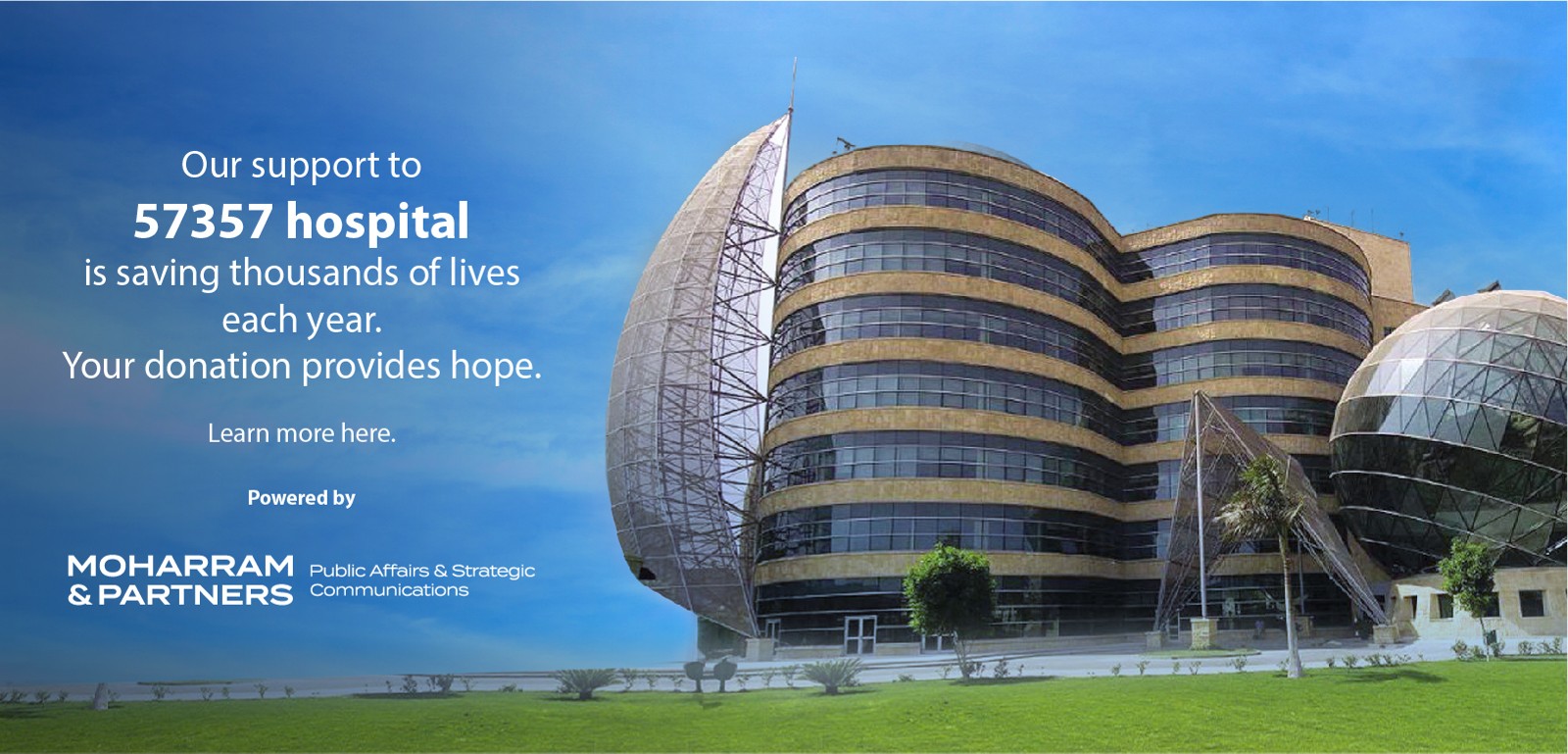- Oil Ministry launches new oil + gas tender. (Energy)
- The FRA is easing credit limits for homebuyers. (Regulation Watch)
- TCI Sanmar to invest at least USD 160 mn in new loading terminal in Egypt. (Investment Watch)
- Egypt signs agreement with JICA for USD 301 mn loan for Cairo Metro Line 4. (Transport)
- 2022 in Review: Market volatility this year opened opportunities for Egypt’s energy sector. (Energy)
- 2022 in Review: Startup funding continued to increase despite global turbulence. (Startup Watch)
- 2022 in Review: Warming ties and two weeks on the global stage. (Foreign Policy)
- Russia to ban oil sales to countries that implement the G7 price cap from February. (Planet Finance)
- Infrastructure in 2022 (pt 2): The year in investment. (Hardhat)

Wednesday, 28 December 2022
AM — EnterpriseAM will see you in 2023
TL;DR
WHAT WE’RE TRACKING TODAY

And that’s a wrap on 2022, ladies and gents: Today is the final time you’ll hear from us this year. EnterpriseAM and EnterprisePM will be off this Thursday, 29 December and Sunday, 1 January, before returning to our publishing schedule from Monday, 2 January. We wish you all a wonderful start to the new year.
PSA #1- Banks will be off on Sunday, 1 January to mark the end of their fiscal year, and will be returning to work on Monday, 2 January, the Central Bank of Egypt said yesterday. The EGX has also followed suit and declared Sunday a holiday in light of banks’ closure, in a statement seen by Enterprise.
PSA #2- Amendments to the expat car-for-FX scheme are now live: It is now easier for Egyptian expats to import cars tax-free after the Finance Ministry yesterday amended the rules of its cars-for-FX scheme in a bid to increase demand.
Rewind: Egyptians abroad are able to import cars tax- and customs-free provided they pay the dues up front in foreign currency by 28 February. The scheme was introduced by the government to help address the FX shortage.
The scheme is yet to take off: Since its launch six weeks ago, the response among expats has been lukewarm at best. The government was hoping to bring in USD 2.5 bn in FX from the 15-week scheme but a third of the way through only 4k people had submitted requests, which will likely net just USD 62 mn.
The FinMin has made a number of changes to save the program:
- Rules that required expats to pay the fees at least three months prior to importing a car have been scrapped, as agreed by the cabinet a few weeks ago. Instead, they will be able to submit six months’ worth of bank statements to prove their ability to pay.
- Customs clearance fees for cars imported through the program will also be capped at EGP 3k.
- Expats can also purchase cars from dealerships in Egypt’s freetrade zones through a separate app, with the process following the same rules as the rest of the program.
THIS WEEK-
Companies have three days to register with the Egyptian Tax Authority’s e-invoicing system after the Finance Ministry earlier this month gave companies an additional two weeks. Only 150k companies had signed up to the new system as of the end of November, well below a sought goal of 1 mn companies to register under the system.
REMEMBER- This deadline no longer applies to the self-employed: The Finance Ministry pushed the deadline for self-employed professionals — including doctors, pharmacists and lawyers — to 30 April 2023 after widespread opposition to the system.
|
DEBT WATCH-
The FinMin won’t be drawn on when it might return to the international capital markets: Tapping global markets, be it through sukuk or bond issuances, is going to be contingent on market conditions, Finance Minister Mohamed Maait said when we asked this week. “We are currently following global markets … which will help us determine the right time to move forward with an issuance.”
“Uncertainty still dominates global markets,” he said, pointing to rising inflation.”We hope that global markets settle down next year and we hope the same for inflation.”
REMEMBER- We are expecting the Finance Ministry to go ahead with the maiden sukuk issuance and a sale of so-called panda bonds in China next year, with a USD 500 mn issuance of CNY-denominated bonds planned for 1Q 2023 and a USD 1.5-2.5 bn sale of shariah-compliant securities before the end of the fiscal year in June.

*** It’s Hardhat day — your weekly briefing of all things infrastructure in Egypt: Enterprise’s industry vertical focuses each Wednesday on infrastructure, covering everything from energy, water, transportation, and urban development, as well as social infrastructure such as health and education.
In today’s issue: The second and final part of our review of the year in infrastructure.
31 December: Disco Mania, a new commercial concept at Somabay Theater: Somabay always ends the year in the absolute best way possible. Our new year’s weekend is bound to be explosive this year. We’ve come up with some of your favorite concepts over the past years and we’re back for a whole new commercial concept this New Year’s Eve, boasting a massive commercial line-up on 31 December with a set from local tastemaker DJUNKIE, who'll be followed by shows from Aziza and The Girly Show. For more information, kindly call 16390.
ENERGY
Oil Ministry launches new oil + gas tender

Oil Ministry kicks off fresh oil + gas tender: State-owned Egyptian Natural Gas Holding Company has launched an international oil and gas tender for 12 exploration blocks in the Mediterranean and Nile Delta, according to an Oil Ministry statement. The tender, which concludes on 30 April, 2023 at 12pm, includes six onshore blocks and another six offshore blocks.
The tender will take place on the Egypt Upstream Gateway (EUG) digital platform, which provides E&P companies geological data for exploration and production activity.
Egypt is doubling down on its oil and gas industry, as well as rationing domestic gas consumption, as part of its efforts to bring to an end a shortage of foreign currency. Ministers will be hoping that the new tender, together with the new oil exploration agreements recently approved by MPs, will provide a significant boost to output. Natural gas production reportedly fell from a peak of 7.2 bn cf per day to 6.5 bn cf/d in the year to 3Q 2022.
The news received attention internationally: Reuters.
REGULATION WATCH
FRA eases borrowing limits on home loans

The FRA is easing credit limits for homebuyers: The Financial Regulatory Authority has loosened income requirements for mortgage lenders in a move designed to boost lending and help people purchase homes amid rising house prices. In a statement yesterday, the regulator said that it had raised the income / installment ratio to 50% from 35-40% previously, allowing borrowers to take on a greater amount of debt as a proportion of their income.
- Homebuyers are now eligible for mortgages that will see them pay up to 50% of their monthly income in installments
- The rules previously capped the monthly installments at 35% for low-income individuals and 40% for middle-income borrowers.
Why the change? The FRA said that the decision was taken in response to “various economic variables,” especially the soaring rate of inflation. The depreciation of the EGP against the greenback this year has sent urban inflation to five-year highs, which has also caused house prices to rise.
Uncertainty about state assistance for home loans: The move comes as the central bank stops subsidizing low-interest loans for homebuyers, and passes responsibility to the Housing Ministry as part of the recent loan agreement with the IMF. It is unclear whether the Housing Ministry will keep the two subsidized mortgage initiatives going in their current forms.
INVESTMENT WATCH
TCI Sanmar to invest at least USD 160 mn in new loading terminal in Egypt

Indian industrial chemical manufacturer TCI Sanmar plans to invest an initial USD 160 mn to set up a loading terminal near Port Said to import ethylene, a source close to the matter told Enterprise, confirming a report from Zawya. The terminal, which will be financed both through bank loans and self-financing, will take two years to complete, Zawya quoted Chairman PS Jayaraman as saying. Our source could not confirm details on financing and timeline of the terminal’s construction.
The company is also maintaining its regular annual capex spend of around USD 15 mn in Egypt next year to expand its local production capacity for calcium chloride, our source said. The money will fund four new production lines with a total capacity of 225k tons a year, an expansion that is expected to take two years to complete, Jayaraman reportedly said.
About TCI Sanmar: The Indian chemicals company has invested some USD 1.5 bn into local factories for polyvinyl chloride (PVC), caustic soda, calcium chloride and green ethylene, making it Egypt’s largest Indian investor, according to its website.
TRANSPORT
We’re getting more money from JICA for Cairo Metro Line 4
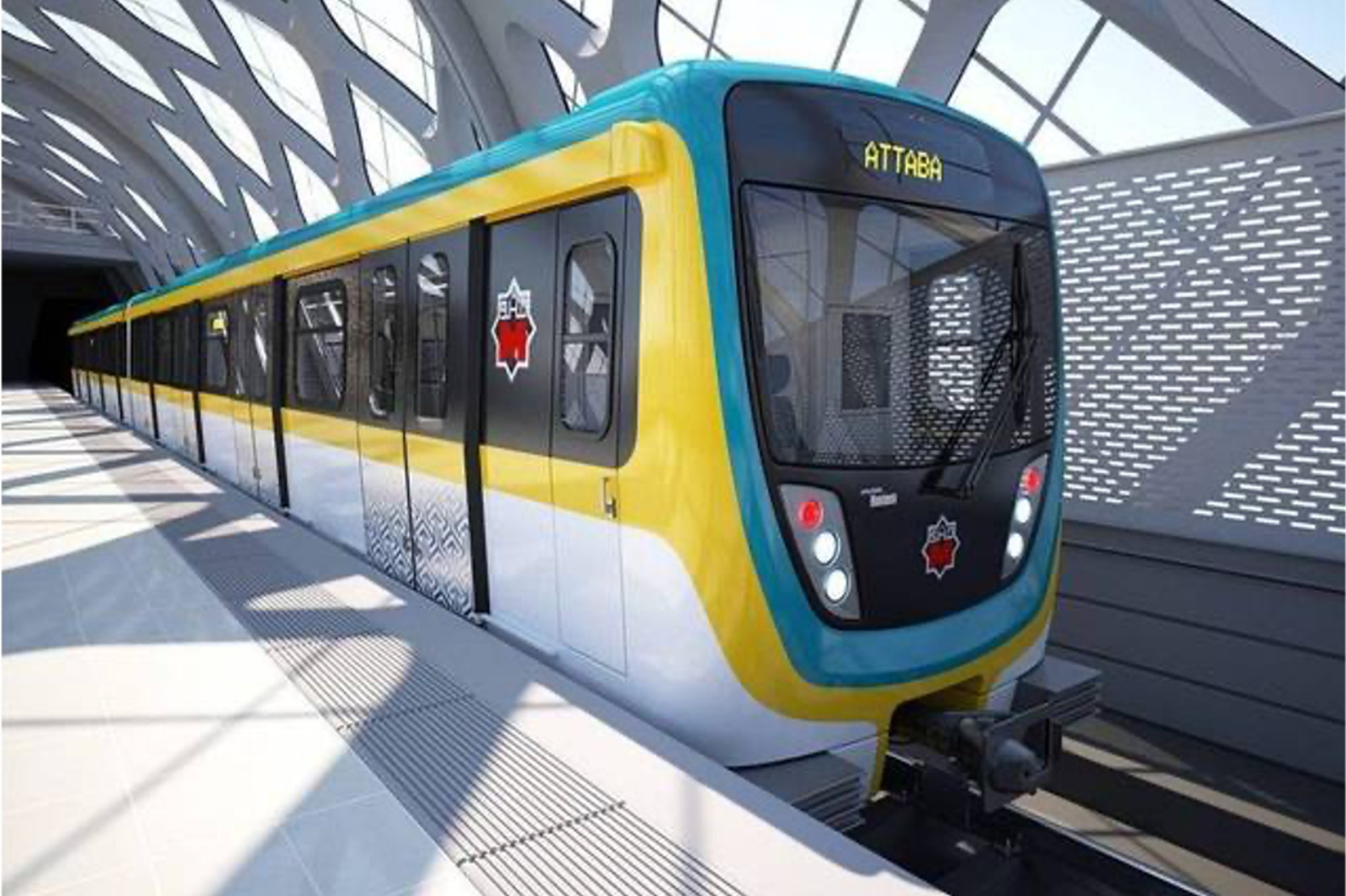
Egypt inks agreement with JICA for second tranche of Cairo Metro loan: The Japanese International Cooperation Agency (JICA) signed an agreement with International Cooperation Minister Rania Al Mashat and Transport Minister Kamel El Wazir to disburse the second USD 301 mn tranche of its USD 1.2 bn loan to finance construction of the first phase of Cairo Metro Line 4, according to an International Cooperation Ministry statement.
In detail: The tranche comes 10 years after JICA disbursed the first JPY 32.7 bn (USD 291.5 mn) tranche of the loan back in 2012. The agency had said back in 2017 it was “prepared” to disburse the second tranche once the National Railway Authority spent the first tranche on the metro construction project. The first two tranches add up to USD 592.5 mn, nearly half of the USD 1.2 bn four tranche loan.
Refresher on Cairo Metro Line 4: The first 19-km phase of the line is expected to take six years to complete and will connect Giza, Cairo and Sixth of October City. It will include 16 stations and provide access to the Grand Egyptian Museum and the Giza Pyramids. The second, 23.5-km phase, will connect to New Cairo and will include 20 stations.
YEAR IN REVIEW: ENERGY
Market volatility in 2022 saw big chances open up for our energy sector

2022 sent the energy markets on a wild ride: The outbreak of war in Ukraine sent energy to the front pages of the global press this year. Europe’s loss of Russian fossil fuels helped drive up inflation and raised thorny questions over how to ensure energy security in an increasingly uncertain world. Meanwhile, the ongoing transition to greener forms of fuel exacerbated worries over a longer-term global imbalance between energy supply and demand.
Volatility in the global markets had knock-on effects here at home, from rising prices at the pump to pricier fuel and raw materials costs for industry. But there were also silver linings, as the shifting geopolitical landscape to our north presented a chance for Egypt to accelerate long standing ambitions to become a regional energy export hub.
The outbreak of war in Ukraine sent oil and gas markets spiraling: Russia had long been the dominant energy supplier to the EU, sending the bloc around a third of its crude oil and 40% of its gas. That all changed with the invasion of Ukraine and subsequent breakdown of relations between Moscow and the West. By December, the EU and UK had put in place an embargo on Russian seaborne crude, while the G7 had implemented a price cap that is expected to effectively halt the purchase of Russian crude by member states. Russia had already shuttered the Nord Stream gas pipeline to Germany in preemptive retaliation. Brent crude futures shot up to approach USD 130 a barrel at the height of the uncertainty in the spring, before falling back to around USD 85 per barrel by the end of the year as Europe succeeded in securing winter energy supplies.
As Europe scrambled to find alternatives to Russian gas, Egypt stepped up to the plate: As a net importer of oil but a net exporter of natural gas, Egypt looked to offset rising oil prices by capitalizing on Europe’s supply crunch, ramping up shipments of liquefied natural gas (LNG) from the Idku and Damietta liquefaction plants. Our LNG exports were expected to rise 14% y-o-y by the end of the year to 8 mn tons, 90% of which has been directed to Europe to meet growing demand as Egypt looks to replace Russian supply, Oil Minister Tarek El Molla said recently. Egypt wants to raise gas export revenues to USD 12 bn this year “if [gas] prices remain elevated,” up from USD 7-8 bn in 2021, he said.
To ramp up LNG exports at short notice, the gov’t looked to curb domestic electricity demand: Spying the opportunity created by Russia’s exit and looking to drum up much-needed FX, the Madbouly government in August moved to limit the country’s use of electricity in order to raise natural gas exports. Government buildings and sports facilities were asked to cut their consumption, including by turning the lights off outside daytime hours, a lower limit of 25°C was put in place for A/C in malls, and retailers were asked to reduce bright lighting in storefront. The government hoped the measures, which remain in effect, would make available some 15% of the gas that is currently allocated to the nation’s power stations, netting itself an extra USD 450 mn a month in revenues. Price increases on natural gas supplied to cement producers and brick kilns came into effect in October, in another move to dampen domestic demand and redirect more gas for export. And our burning of mazut fuel oil in power stations soared to a five-year high, as the cheaper fuel was used in place of natural gas that was redirected for export.
And prices at the pump continued to rise: The government’s fuel pricing committee raised petrol prices in the first, second, and third quarters of 2022, extending a streak of price hikes to six consecutive quarters. Diesel prices also went up for the first time in years at the start of 3Q 2022, as the state looked to reduce its subsidy bill amid rising global energy prices. There were no price hikes in the last quarter of the year as energy markets began to cool. Prices at the pump are now up 23-28% since April 2021, depending on which grade you’re putting in the tank. Public transport fares — including taxis, microbuses and buses — had increased by 5-7% across the country as of July.
These short-term measures helped us ride out volatility in 2022 — but the government also made progress on long-term energy export ambitions. To sustain the growth in energy exports, a serious infrastructure push is needed. We saw signs of that push coming to fruition this year, as Egypt looked to strengthen regional partnerships in a bid to position itself as the key link between energy suppliers across the Mediterranean and European buyers. Egypt signed a landmark nine-year agreement with the EU and Israel in June to increase gas exports to Europe, which will see the three sides work together on the “efficient utilization” of infrastructure to increase gas shipments to the EU, as well as reduce methane emissions and explore carbon capture projects. Meanwhile, progress continued on plans to construct a pipeline connecting Cyprus’ Aphrodite natural gas field to Egypt, which is expected to be up and running by 2025.
Major multinationals are on board to help ramp up Mediterranean flows: Italian energy giant Eni — which holds a 50% stake in the Damietta LNG plant and produces around 60% of the country’s gas — this year said it wants to develop LNG projects in the region, including in Egypt, under a plan to invest around EUR 4.5 bn in upstream activities every year until 2025. Chevron is also keen to tap Med gas, and is working with state-owned EGAS to develop infrastructure to transport gas from offshore fields to Egypt and increase exports. London-headquartered Energean is also banging the drum for more EastMed gas investment. Meanwhile, a contested merger between Capricorn Energy and Israel’s NewMed could pave the way for closer energy ties between Israel and Egypt if shareholders give it the all-clear.
Oil Minister Tarek El Molla called on European development partners to match the private sector’s enthusiasm and help fund new drilling in the Mediterranean, arguing that accelerating hydrocarbon flows could help tame Europe’s energy crisis as well as accelerate the green transition.
There’s no shortage of local assets to tap: The year closed out with news of a large gas find by Chevron in the Eastern Mediterranean, with MEES reporting that the field could contain as much as 3.5 tn cubic feet of gas. December also brought a fresh international tender by EGAS, which this week opened bids on 12 new oil and gas exploration blocks in the Mediterranean and Nile Delta.
Don’t think the year in energy was all about oil and gas: The COP27 climate summit brought major developments in cleaner fuels, green hydrogen, and renewable energy — including initial agreements worth a total USD 117 bn for at least 29.5 GW of fresh local wind power developments and nine green hydrogen and green ammonia facilities. We cover the year in green energy in detail in Part II of our Going Green Year in Review, here.
YEAR IN REVIEW: STARTUPS
Turbulence yes, slowdown no

Despite a turbulent year, Egypt’s startup investment numbers still look quite good: While the startup world has been busy dealing with the VC squeeze, Egyptian startups broke yet another funding record. But this time around, the numbers were accompanied by news of layoffs, meltdowns and consolidation, as we previously wrote.
We take a look at what our internal trackers tell us about those investment rounds in terms of size, types of investors, and sectors. What we can say up front is that fintech is hogging the top spot once again in terms of number of transactions, and that the average round size has dropped for the first time in two years.
DISCLAIMER- These numbers are — at best — approximations, with three startups only disclosing that they had raised a “six- or seven-figure round” and 22 others preferring to not name an exact amount.
Our internal trackers count 94 investments in Egyptian startups in 2022, a 24% increase from 76 in 2021. February, March and October were prime time for startup investments. Eighteen closed investment rounds were announced in March, there were 13 in February and 12 in October. The quietest month of the year was July with only one six-figure investment announced, followed by November with three rounds. However, there wasn’t a single month all year devoid of investment announcements.
How much did Egyptian startups raise in 2022? Local startups raised almost USD 507 mn this year, up 36% from the USD 373 mn last year, according to our data.
But accelerators have been less active than last year. Besides the above-mentioned investment rounds, EFG-EV made one investment at an undisclosed amount, CEO of EFG-EV Saif El Bendary told us. In 2021, the amount stood at USD 1 mn for two transactions. Flat6Labs Egypt invested in 13 startups with a total value of EGP 33 mn (USD 1.3 mn), according to Egypt principal Mohamed El Ghannam, compared to USD 3.14 mn in 29 transactions last year.
Falak Startups topped its figures from 2021. Falak Startups invested just over USD 1 mn in nine new portfolio companies, while pumping follow-on investments in two existing ones worth USD 136k. Last year, it had invested over USD 416k through eight transactions.
The average transaction raised was lower this year compared to 2021. Of those who disclosed a precise figure, the average raised this year per transaction was USD 5.4 mn, down from USD 6.09 mn in 2021. Additionally, we did not have to set aside any megarounds out of fear of skewing the data, unlike last year.
The five largest tickets in 2022 were mainly pre-series B or series B rounds. The largest round this year goes to Paymob, which raised a whopping USD 50 mn series B round, followed by Maxab’s USD 40 mn pre-series B. Blnk collected USD 32 mn via a number of different investment vehicles, while Moneyfellows’ USD 31 mn series B and ArabyAds’ USD 30 mn pre-series B rounds also made it to the top five transactions this year.
Some 68% of investments had international involvement, compared to 60% last year. Some 25 transactions were solely fulfilled by local investors, while 22 rounds were only raised from international investors. This leaves us with 47 transactions fulfilled by a combination of local and international investors, equivalent to 50%.
Fintech and e-commerce are almost tied again for the top sectors of 2022, similar to last year. But fintech was the clear favorite with 18 investments, while e-commerce saw 15 transactions.
And it seems like healthtech and edtech are definitely gaining ground: Healthtech had 10 investments in total, which is five more than in 2021, bringing it into third place. Edtech, which was last year’s newcomer, came in fourth place with nine investments.
But investors seemed to have diversified more than last year: While we’ve seen the usual suspects of logistics (6 investments), SaaS (6), grocery delivery (4) and proptech (3) represented, we’ve also seen rounds in fashion, interior design, gaming, cloud kitchens, funeral services, and life sciences come in.
Pre-seed and seed rounds were all the rage this year — again: Pre-seed and seed rounds each saw 28 transactions in 2022, accounting for the bulk of this year’s rounds. Eighteen companies did not specify for which rounds they were raising, five raised a pre-series A, seven announced series A rounds, and nine companies ranged between bridge rounds and other types of funding.
What do startups want to do with all those USDs? Mainly product development. Forty-five startups want to work on their offering, while 23 are looking to increase their headcount and hire new talent. One prominent theme this year was expansion into the GCC and MENA, followed by tech development.
YEAR IN REVIEW: FOREIGN POLICY
Diplomacy in 2022: Warmer ties and a standout success story
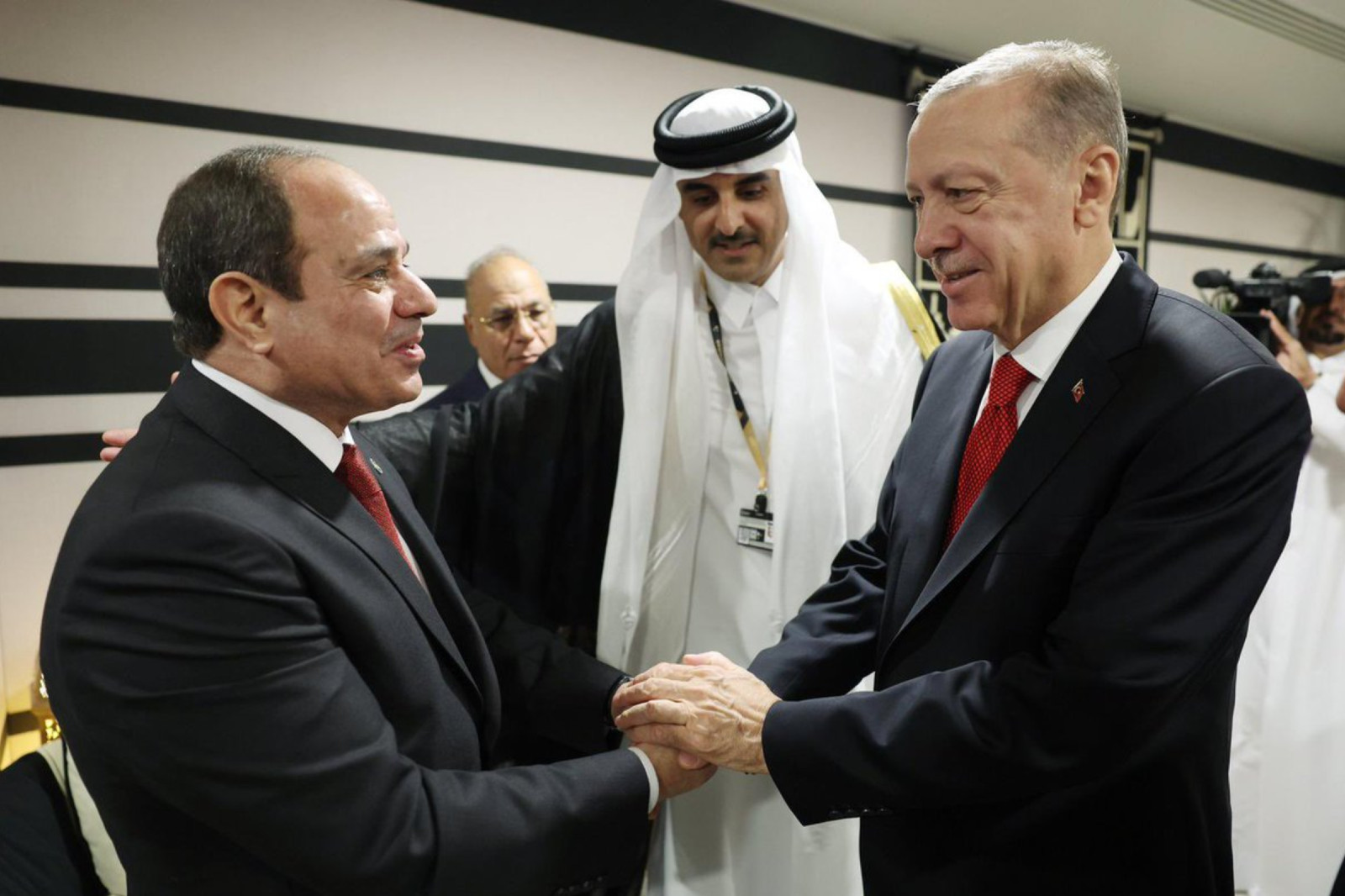
For our foreign policy, 2022 was the year of continuing to mend fences — all while taking center stage globally with one of the biggest international events: Egypt’s foreign policy in 2022 continued to play out on largely the same notes as it did in 2021. We continued to patch up our relations with Qatar after officially reinstating diplomatic ties last year, while the rapprochement with Turkey also inched closer. Meanwhile, as has been the case for the past several years, the issue of the Grand Ethiopian Renaissance Dam (GERD) remained an unresolved thorn in our side. But the big foreign policy moment for us in 2022 was hosting COP27 in November, which took months of preparations and diplomatic legwork to drive policy priorities.
First things first: In our neck of the woods, we’ve been bolstering ties and further cementing our regional diplomatic importance. After ending our four-year blockade against Qatar in 2021, we continued to cozy up with Doha throughout the year. Top Qatari officials visited Cairo to consolidate our cooperation, but the landmark moments in our relationship were when Qatari Emir Sheikh Tamim bin Hamad Al Thani came to Egypt in June and when President Abdel Fattah El Sisi headed to Doha in September. Besides the face time between the two leaders confirming that all is well and good between Egypt and Qatar, these visits brought with them important progress on investments and economic cooperation for the two countries. While in Doha, El Sisi lined up multiple investments from Qatar, which had already pledged to invest USD 5 bn in Egypt to help support the economy amid the fallout from the war in Ukraine.
We also got in on a regional push with other countries: Egypt, Israel, and the UAE bolstered their relations this year, with three-way meetings between the three countries that touched on cooperation in several areas — and more or less set up a contain-Iran axis. That meeting was then followed by the Negev Summit, during which senior officials from Egypt, Israel, the UAE, Bahrain, Morocco, and the US discussed regional issues and agreed to deepen ties in a range of areas, including clean energy, education, food and water security, and health, as well as regional security. The summit, which the Israeli government agreed to make an annual event, is largely being framed as a major geopolitical realignment in the region.
Things are looking better with Turkey, too: After officials from Egypt and Turkey began consultations last year to restore diplomatic ties — which have been severed since 2013 — El Sisi and his Turkish counterpart Recep Tayyip Erdogan shook hands at the World Cup last month, signaling potential for progress on mending relations. High-level talks between the two countries were suspended after only two rounds after the two sides failed to see eye to eye over Ankara’s role in Libya.
Our ties with Washington remain “meh”: After making headway with the Biden administration last year with our successful mediation of a ceasefire between Palestine and Israel, Egypt lost out on a portion of its annual US military aid due to its human rights record. In February, the White House said it would cancel USD 130 mn in military aid to Egypt — which had been frozen since the previous year — citing “specific human rights-related conditions.” Still, our security cooperation with the US stayed strong, with arms purchases and visits from top US military brass going on as normal.
Meanwhile, GERD negotiations went nowhere — again: Negotiations between Egypt, Sudan, and Ethiopia over the Grand Ethiopian Renaissance Dam (GERD) — previously a key focal point of Egyptian foreign policy and diplomatic activity — stalled for yet another year, with no tangible progress to speak of. Talks hit a wall when Ethiopia unilaterally embarked on the second filling of the dam’s reservoir and Egypt and Sudan pulled out of the Africa Union-led negotiations. Tensions then continued to heighten when Ethiopia completed its third filling of the dam in August.
Officials did, however, expend a lot of effort rallying international support for our position on the dam: El Sisi and Foreign Minister Sameh Shoukry discussed the GERD issue with global leaders in a bid to drum up support for Egypt in the negotiations. Critically, El Sisi met with Senegalese President Macky Sall at the start of the year, ahead of Senegal assuming the presidency of the African Union. Ethiopia had previously signaled it wanted to bring back GERD talks to the AU. Egypt also took the matter to the UN Security Council again. Most recently, El Sisi appealed to the US earlier this month during a visit to Washington, asking US Secretary of State Antony Blinken to throw its weight behind Egypt on the “vital and existential” matter. Blinken encouraged the three countries to continue pursuing a diplomatic resolution to the issue, but signaled the US will not be taking sides.
Now, we get to the good stuff: COP27. Egypt was nominated to host COP27 in November last year, after El Sisi announced Egypt’s bid to host the conference. We were officially passed the hosting baton in June, but by then Egyptian officials had already embarked on a flurry of diplomatic activity to prepare for the large-scale event. Shoukry, along with International Cooperation Minister Rania Al Mashat and Environment Minister Yasmine Fouad began pushing a climate agenda focused on innovative climate financing, as well as support for emerging markets — particularly in Africa — on mitigation and adaptation.
Want more about the outcomes of the climate conference? We have the full recap in last week’s edition of Going Green.
LAST NIGHT’S TALK SHOWS
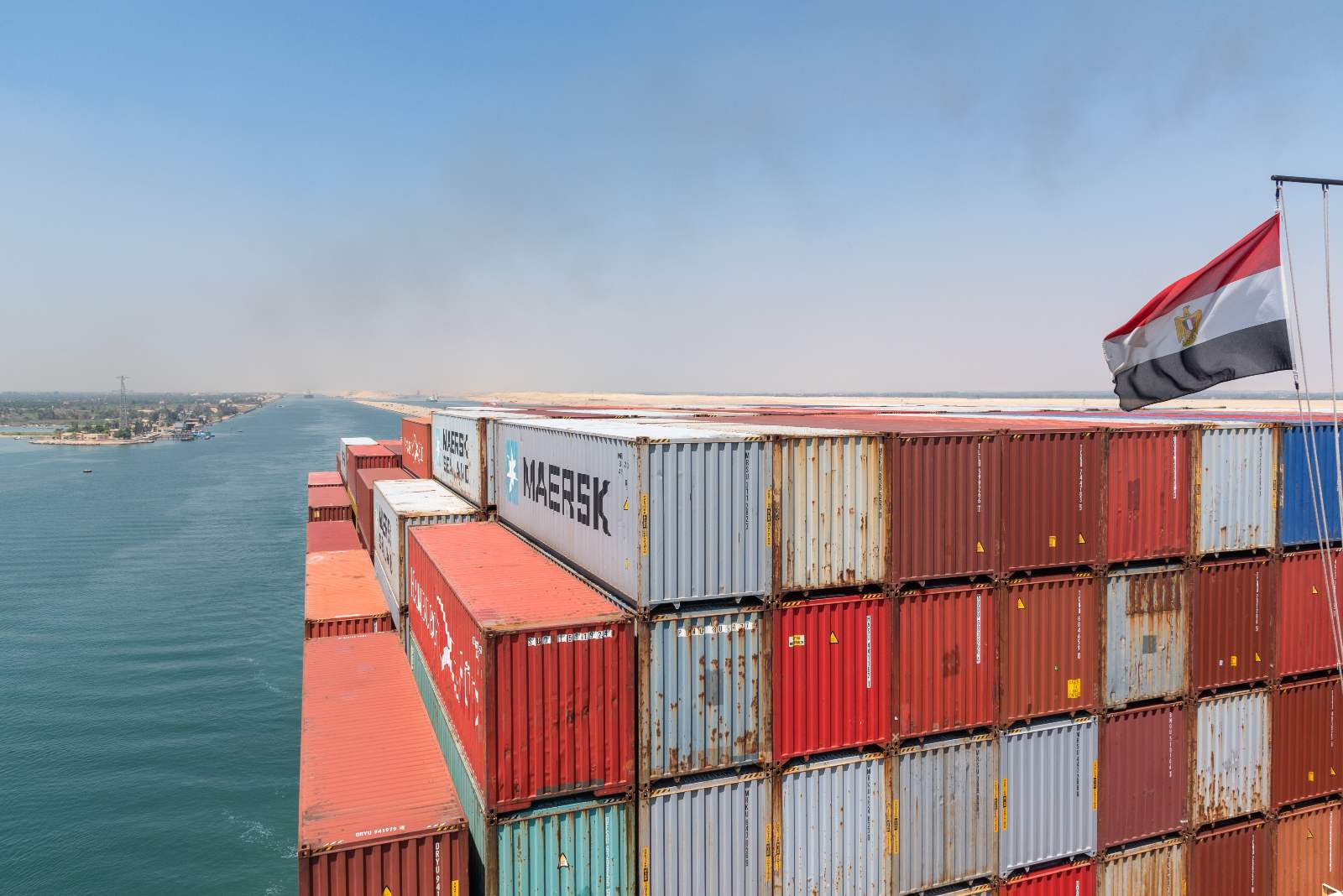
Imports led the talk shows last night for the second night running, this time centered around the Customs Authority’s decision to crack down on violators who fail to disclose the true value of their imported goods. The authority yesterday said that importers caught fabricating documentation and submitting invoices of less than USD 2k — which would allow for their shipments to be immediately released without the need for a Form 4 customs document —will be classified as high risk importers on the ACI system, depriving them of any custom facilities. Violators could also face a 3-12 month suspension.
It’s yet another way of USD abuse: The Form 4 document requires importers to transfer the value of their imports from abroad through Egyptian banks. Dodging this would allow importers to keep hold of their hard currency and avoid paying customs and tax. This marks the latest in a list of measures the state has introduced to address the growing shortage of foreign currency in Egypt and crack down on the parallel market.
The Customs Authority has so far recorded 26k violations, the head of the authority, El Shahat El Ghatwary, told Ala Mas’ouleety last night (watch, runtime: 4:23). Some importers have declared imports worth USD 1.5k when in fact their imports were coming in at USD 200k-300k, he said.
Also talking imports on the air last night: FinMin advisor Mona Nasser was on Masaa DMC (watch, runtime: 8:12), and Assistant Supply Minister Ibrahim Ashmawy joined Kelma Akhira (watch, runtime: 12:28).
ALSO ON THE AIRWAVES-
FACT CHECK- Chinese mobile maker Oppo is not exiting the Egyptian market, Oppo Egypt’s public relations head Raghda Amer told Kelma Akhira last night (watch, runtime: 4:13) denying rumors circulating in the local press that the company has let go of all of its employees in Egypt ahead of exiting the market. The company has only shut down two of its local branches in response to local market disturbances, letting go of no more than 30 employees in the process, she said.
Giza Zoo + Orman Garden are now under the management of the military: A military-owned company has been awarded a 25-year contract to renovate the Giza Zoo and the Orman Garden, the head of the firm told Kelma Akhira’s Lamees El Hadidi this week (watch, runtime: 9:26). The National Military Production Company for Projects, Engineering Consultations and General Supplies will next month start to renovate the sites over an 18-month period. Following parliamentary approval on Thursday, management of both sites will be transferred from the Agriculture Ministry to the Military Production Ministry.
EGYPT IN THE NEWS
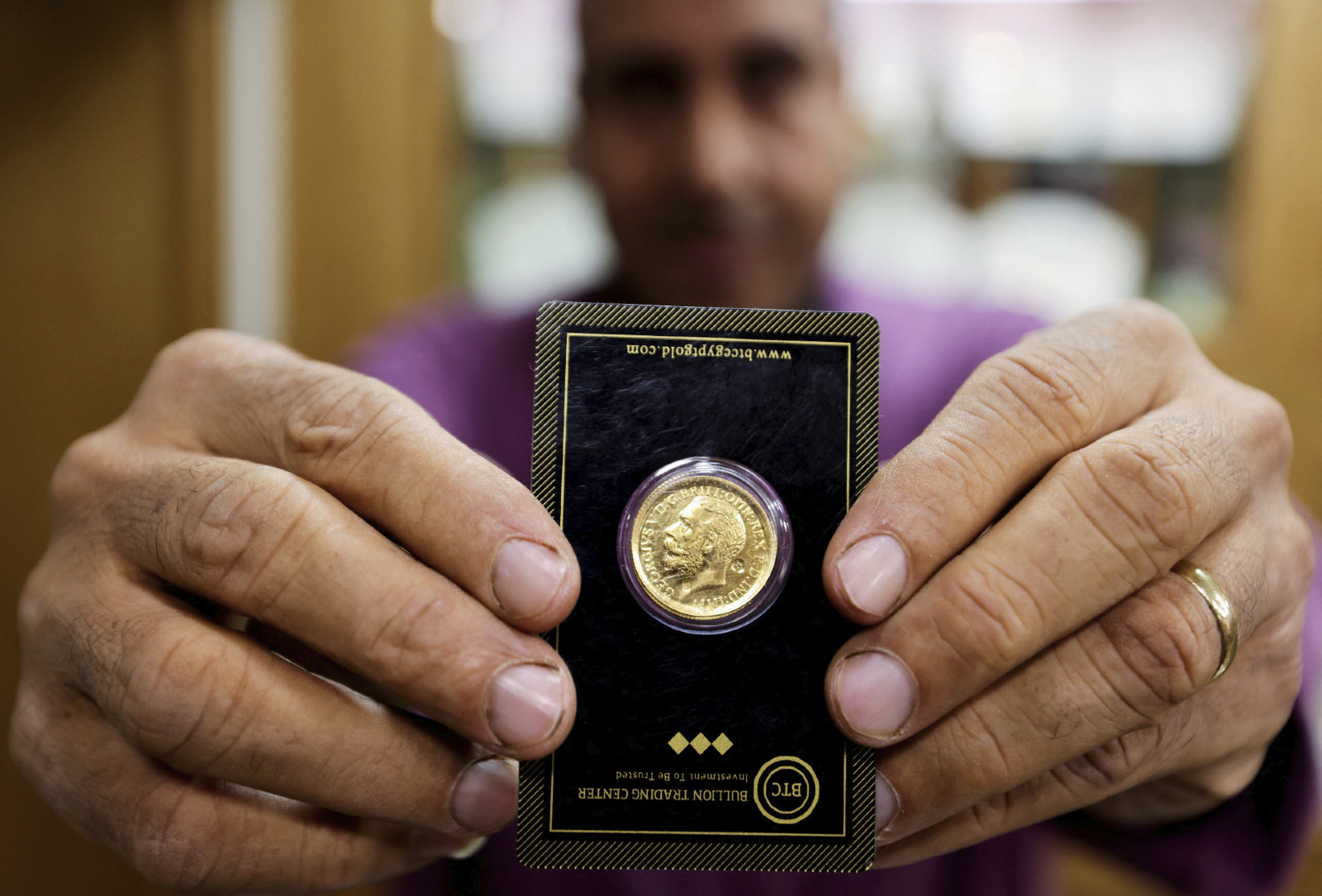
It’s still all about the economy this morning in the foreign press: Reuters looks at the recent volatility in the local gold market, which has recently seen the precious metal soar to record highs following the devaluation of the EGP at the end of October. Meanwhile, the National writes that the soaring cost of living is going to prevent many Egyptians from traveling to Saudi Arabia for Umrah.
ALSO ON OUR RADAR

COMMODITIES-
State grain buyer GASC reportedly purchased 80k tons of Russian wheat at USD 339 per ton for shipment in the first half of February on a cost and freight basis, traders told Reuters.
It’s not final: Some traders believe that the purchase may require the World Bank’s approval seeing as it will be paying for it as part of the USD 500 mn it is lending us to boost our food security, USD 350 mn of which are going directly into the GASC’s pocket for wheat purchases.
More purchases to come: GASC will reportedly finalize three more purchases from the same supplier over the coming few days.
INVESTMENT-
Egyptian agri e-commerce player gets Emirati investment: Emirates International Investment Company (EIIC), National Holding’s investment arm, has invested in B2B fresh produce player Mahaseel Masr to expand its agri e-commerce platform, according to a press release (pdf). The investment will allow Masaheel to expand geographically and to introduce technological and financial value added services. The statement didn’t provide any information about the investment, including whether EIIC has acquired equity in the company.
NBFS-
Contact Financial is getting into green finance: Non-banking financial services outfit Contact Financial Holding has launched a new product providing finance targeted at eco-friendly and sustainable projects, it said in a statement (pdf) yesterday. Its “Green Finance”' installment service offers repayment plans of up to five years with no down payment.
Eligible for finance: Solar panels, irrigation systems, greenhouses, fishery ponds, and poultry and livestock farms, among others, the statement reads.
REGULATION-
The government has amended Egyptian Accounting Standards (EAS) in response to the flexible EGP rate adopted earlier this year and its impact on company earnings, according to a decree published in the Official Gazette yesterday.
STARTUPS-
Classera eyes expansion in Egypt: US-based MENA-focused e-learning startup Classera plans to up its investments in Egypt and add new learning and training services to its existing portfolio, it said in a statement (pdf) yesterday, without disclosing how much it plans to invest. The move comes weeks after the company secured USD 40 mn in a series A funding.
PLANET FINANCE
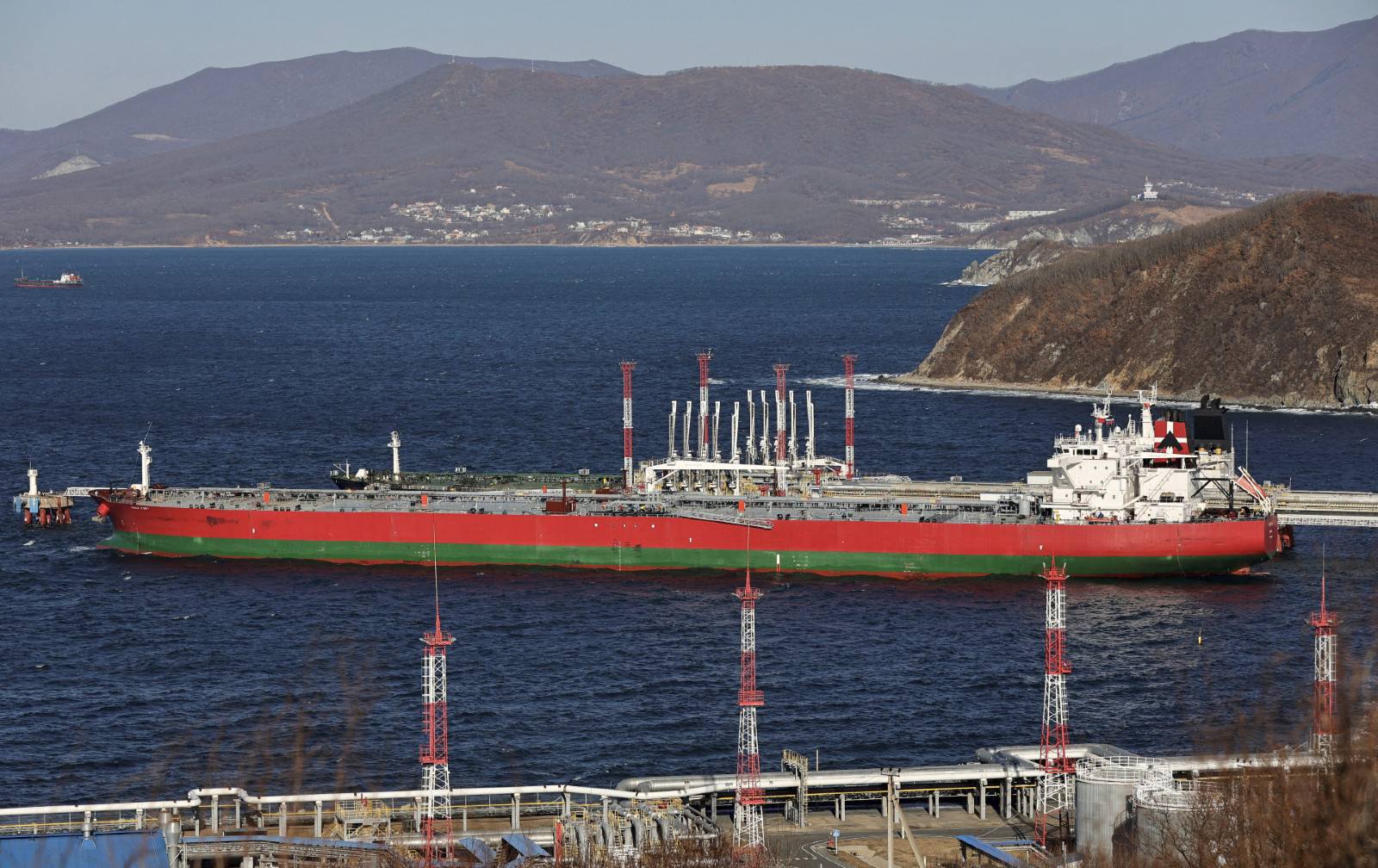
Russia responds to the G7 price cap: Russia will ban oil sales to countries that impose the G7’s price cap from 1 February, the Kremlin announced yesterday in a move that could trigger further volatility in global energy markets in the months ahead.
It could have been worse: The ban will apply “to all stages of sales up to and including the final buyer,” but gives Putin power to make exceptions to the rule, allowing Moscow to keep shipments flowing to allied countries such as China and India if they comply with the price cap.
The reaction in the oil market has been muted: Brent inched up 0.9% to USD 85.22 during trading yesterday and is down slightly today.
The story is big story abroad this morning: Reuters | Bloomberg | WSJ | FT | BBC.
|
|
EGX30 |
14,485 |
-0.5% (YTD: +21.2%) |
|
|
USD (CBE) |
Buy 24.69 |
Sell 24.77 |
|
|
USD at CIB |
Buy 24.68 |
Sell 24.75 |
|
|
Interest rates CBE |
16.25% deposit |
17.25% lending |
|
|
Tadawul |
10,359 |
+1.3% (YTD: -8.2%) |
|
|
ADX |
10,256 |
0.0% (YTD: +20.8%) |
|
|
DFM |
3,348 |
+0.6% (YTD: +4.8%) |
|
|
S&P 500 |
3,829 |
-0.4% (YTD: -19.7%) |
|
|
FTSE 100 |
7,473 |
+0.1% (YTD: +1.2%) |
|
|
Euro Stoxx 50 |
3,833 |
+0.4% (YTD: -10.8%) |
|
|
Brent crude |
USD 85.22 |
+0.9% |
|
|
Natural gas (Nymex) |
USD 5.19 |
+2.2% |
|
|
Gold |
USD 1,821.90 |
+1.0% |
|
|
BTC |
USD 16,693 |
-0.8% (YTD: -64.0%) |
THE CLOSING BELL-
The EGX30 fell 0.5% at yesterday’s close on turnover of EGP 1.29 bn (16.8% below the 90-day average). Foreign investors were net sellers. The index is up 21.2% YTD.
In the green: Ibnsina Pharma (+3.0%), Cleopatra Hospitals (+2.8%) and Sidi Kerir Petrochemicals (+2.4%).
In the red: Palm Hills Development (-3.4%), Alexandria Containers and Cargo Handling (-2.8%) and Qalaa Holdings (-2.8%).

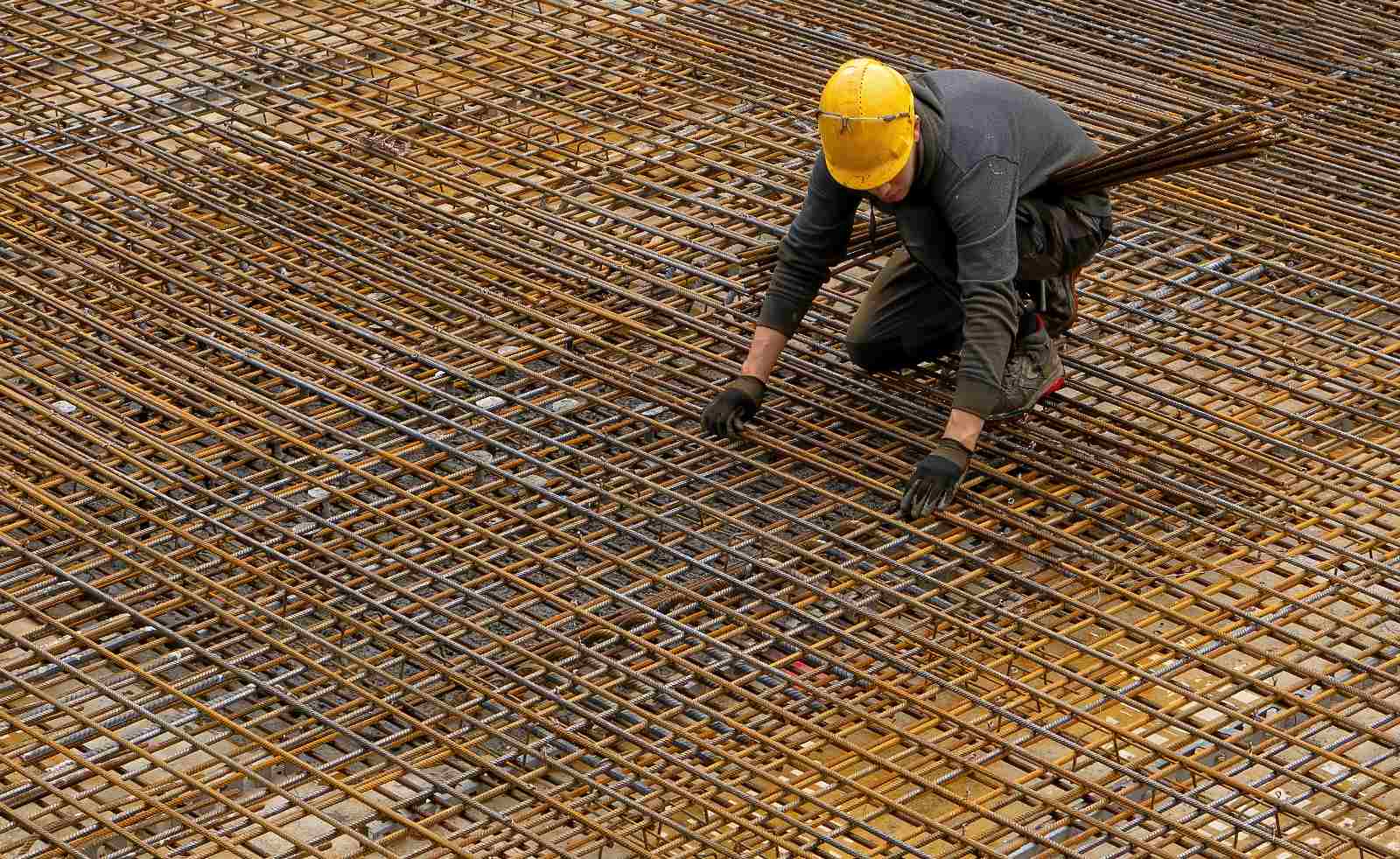
Infrastructure in 2022 (pt. 2): The year in investment. Despite having a year packed with strong headwinds, there were a few encouraging bright spots for desalination projects, major gas agreements, and an amped up PPP drive as the state looks to scale back its role in the economy.
The state’s privatization drive kicked into high gear this year: Prime Minister Moustafa Madbouly earlier this year announced that the government aims to privatize state-owned assets and expand the private sector’s role in the economy through a plan that is targeting to attract some USD 40 bn over the next four years. Since then, foreign companies as well as investment funds in the GCC and elsewhere around the world have shown interest in the government’s initiative to sell state assets in key areas like electric and gas utilities.
Electric and gas utilities companies are up for more opportunities as the state steps back: Renewable energy, EV charging stations and green hydrogen are among the sub sectors where there seems to be the most potential for private sector players moving forward. But private sector players still want to see more incentives for production, transmission, and distribution of electricity — especially in solar power generation and EV battery manufacturing. Electricity distribution in new cities are also expected to be ripe areas for partnership.
Desalination plants have been generating significant investor interest as well: Gulf sovereign wealth funds are among 28 bidders vying for contracts to build the 21 desalination plants the Sovereign Fund of Egypt (SFE) is tendering to the private sector. This is part of the government’s USD 8 bn desalination program, the first stage of which will see the government investing EGP 45 bn to build 47 desalination plants by 2025. So far, some 200 investors have purchased tender booklets for the projects.
Major gas agreements were in no short supply: EGAS signed an MoU with Chevron in June to explore ways to transport, import, liquefy, and re-export gas from the Eastern Mediterranean.
Only a few days prior it signed a separate landmark agreement that will see Israel send more gas to Egypt’s LNG facilities for re-export to Europe. The same agreement will reportedly also see the three sides cooperate on the “efficient utilization” of infrastructure to increase gas shipments to the EU, reduce methane emissions and explore carbon capture projects.
And LNG exports were up this year: LNG exports almost doubled to USD 3.9 bn in the first four months of 2022 and are expected to hit 8 mn tons, rising 14% y-o-y by the end of the year. Our daily production of LNG ranges between 6.6 and 6.7 bn cf/d, with exports hovering at around 1 bcf/d with export volumes expected to rise to 1.5 bcf/d in the next two years. Maximum capacity for LNG exports could reach 12 mn tons per annum in the next three years, Oil Minister Tarek El Molla said in May.
Other investments worth noting: Proposals for green hydrogen projects from international investors this year totaled a whopping USD 83 bn as interest in inking renewable energy agreements continues to grow. The World Bank approved a USD 400 mn financing agreement to boost the performance of the country’s transport and logistics sectors and support a shift towards low-carbon rail systems. Meanwhile, the Suez Canal Economic Zone’s (SCZone) Main Development Company (MDC) and DP World Sokhna signed an agreement to build a USD 80 mn logistics zone at Sokhna Port.
When it comes to public spending, transport was king: In the government’s FY2022-FY2023 budget transport gets the biggest portion of the budget, with EGP 307 bn earmarked for projects in the sector up about 25.3% from FY 2021-2022. Some EGP 176 bn are going to the National Authority for Tunnels, which is overseeing Cairo Metro upgrades as well as the high-speed electric rail and the monorail,
Housing, water and sewage come in second after transport in the government’s budget, with some EGP 294 bn earmarked for the sector, EGP 77 bn of which will go towards 60 new sewage projects to increase the network’s capacity and coverage across the country. An additional 180 projects to expand sewage networks in governorates, with an eye to reach nation-wide sewage coverage of 68% is also on the agenda. Meanwhile, some EGP 26 bn are earmarked for 64 new water projects focused on expanding existing water projects’ production capacity, marking a 23.8% increase from the current fiscal year and a significant reprioritization of the sector.
Amendments to the building violation reconciliation law could be a big opening for real estate developers: Recently approved amendments to the 2019 introduced building violation reconciliation law will help reassure construction companies and signal for more construction to commence Mohamed El Bustani, chairman of the board of directors of El Bustani Group and head of the Real Estate Developers Association in New Cairo and the new administrative capital told us earlier this month.
Your top infrastructure stories for the week: Three consortiums qualify for bidding on Alexandria metro project: An alliance of our friends at Hassan Allam and France’s Alstom is among three consortiums of local and international companies that have qualified to bid for the EUR 1.6 bn project to convert Alexandria’s Abu Qir railway into an underground metro.
CALENDAR
DECEMBER
31 December (Saturday): E-invoicing registration deadline.
December: Egypt to expand Sudan electricity link capacity to 300 MW.
JANUARY 2023
January: EGX-listed companies and non-bank lenders will submit ESG reports for the first time.
January: Fuel pricing committee meets to decide quarterly fuel prices.
January: Infinity + Africa Finance Corporation to close acquisition of Lekela Power.
1 January (Sunday): Use of Nafeza becomes compulsory for air freight.
1 January (Sunday): Residential electricity bills are set to rise as per the government’s six-year roadmap (pdf) to restructure electricity prices by 2025.
2 January (Monday): House back in session.
7 January (Saturday): Coptic Christmas.
24 January-6 February: Cairo International Book Fair, Egypt International Exhibition Center
25 January (Wednesday): 25 January revolution anniversary / Police Day.
26 January (Thursday): President El Sisi will visit India as “chief guest” at celebrations to mark the 74th anniversary of Indian independence.
26 January (Thursday): National holiday in observance of 25 January revolution anniversary / Police Day.
30 January-1 February (Monday-Wednesday): CI Capital’s Annual MENA Investor Conference 2023, Cairo, Egypt.
FEBRUARY 2023
2 February (Thursday): Central Bank of Egypt’s Monetary Policy Committee meeting.
11 February (Saturday): Second semester of 2022-2023 academic year begins for public universities.
13-15 February (Monday-Wednesday): The Egypt Petroleum Show (Egyps), Egypt International Exhibition Center, Cairo.
23-27 February (Thursday-Monday): Annual Business Women of Egypt’s Women for Success conference.
MARCH 2023
March: 4Q2022 earnings season.
23 March (Wednesday): First day of Ramadan (TBC). Maghreb will be at 6:08pm CLT.
30 March (Thursday): Central Bank of Egypt’s Monetary Policy Committee meeting.
APRIL 2023
1 April (Saturday): Deadline for banks to establish sustainability unit.
17 April (Monday): Sham El Nessim.
22 April (Saturday): Eid El Fitr (TBC).
25 April (Tuesday): Sinai Liberation Day.
27 April (Thursday): National holiday in observance of Sinai Liberation Day (TBC).
30 April (Sunday): Deadline for self-employed to register for e-invoicing.
30 April (Sunday): End of Mediterranean, Nile Delta oil + gas exploration tender.
Late April – 15 May: 1Q2023 earnings season.
MAY 2023
1 May (Monday): Labor Day.
4 May (Thursday): National holiday in observance of Labor Day (TBC).
4 May (Thursday): IEF-IGU Ministerial Gas Forum, Cairo.
18 May (Thursday): Central Bank of Egypt’s Monetary Policy Committee meeting.
22-26 May (Monday-Friday): Egypt will host the African Development Bank (AfDB) annual meetings in Sharm El Sheikh.
JUNE 2023
10 June (Saturday): Thanaweya Amma examinations begin.
19-21 June (Monday-Wednesday): Egypt Infrastructure and Water Expo debuts at the Egypt International Exhibition Center.
22 June (Thursday): Central Bank of Egypt’s Monetary Policy Committee meeting.
28 June-2 July (Wednesday-Sunday): Eid El Adha (TBC).
30 June (Friday): June 30 Revolution Day.
JULY 2023
18 July (Tuesday): Islamic New Year.
20 July (Thursday): National holiday in observance of Islamic New Year (TBC).
23 July (Sunday): Revolution Day.
27 July (Thursday): National holiday in observance of Revolution Day.
Late July-14 August: 2Q2023 earnings season.
AUGUST 2023
3 August (Thursday): Central Bank of Egypt’s Monetary Policy Committee meeting.
SEPTEMBER 2023
21 September (Thursday): Central Bank of Egypt’s Monetary Policy Committee meeting.
26 September (Tuesday): Prophet Muhammad’s birthday (TBC).
28 September (Thursday): National holiday in observance of Prophet Muhammad’s birthday (TBC).
OCTOBER 2023
6 October (Friday): Armed Forces Day.
Late October-14 November: 3Q2023 earnings season.
NOVEMBER 2023
2 November (Thursday): Central Bank of Egypt’s Monetary Policy Committee meeting.
DECEMBER 2023
21 December (Thursday): Central Bank of Egypt’s Monetary Policy Committee meeting.
EVENTS WITH NO SET DATE
End of December/early January: SFE’s pre-IPO fund to kick off roadshow.
4Q 2022: Electricity Ministry to tender six solar projects in Aswan Governorate.
4Q 2022: Raya Holding subsidiary Aman and Qalaa Holdings’ Taqa Arabia to launch their fintech company.
End of 2022: Decent Life first phase scheduled for completion.
2023: The inauguration of the Grand Egyptian Museum.
2023: Egypt will host the Asian Infrastructure Investment Bank’s Annual Meeting of the Board of Governors in 2023.
1Q 2023: Adnoc Distribution’s acquisition of 50% of TotalEnergies Egypt to close.
1Q 2023: Egypt + Qatar to launch joint business forum.
1Q 2023: FRA to introduce new rules for short selling.
1Q 2023: Internal trade database to launch.
Enterprise is a daily publication of Enterprise Ventures LLC, an Egyptian limited liability company (commercial register 83594), and a subsidiary of Inktank Communications. Summaries are intended for guidance only and are provided on an as-is basis; kindly refer to the source article in its original language prior to undertaking any action. Neither Enterprise Ventures nor its staff assume any responsibility or liability for the accuracy of the information contained in this publication, whether in the form of summaries or analysis. © 2022 Enterprise Ventures LLC.
Enterprise is available without charge thanks to the generous support of HSBC Egypt (tax ID: 204-901-715), the leading corporate and retail lender in Egypt; EFG Hermes (tax ID: 200-178-385), the leading financial services corporation in frontier emerging markets; SODIC (tax ID: 212-168-002), a leading Egyptian real estate developer; SomaBay (tax ID: 204-903-300), our Red Sea holiday partner; Infinity (tax ID: 474-939-359), the ultimate way to power cities, industries, and homes directly from nature right here in Egypt; CIRA (tax ID: 200-069-608), the leading providers of K-12 and higher level education in Egypt; Orascom Construction (tax ID: 229-988-806), the leading construction and engineering company building infrastructure in Egypt and abroad; Moharram & Partners (tax ID: 616-112-459), the leading public policy and government affairs partner; Palm Hills Developments (tax ID: 432-737-014), a leading developer of commercial and residential properties; Mashreq (tax ID: 204-898-862), the MENA region’s leading homegrown personal and digital bank; Industrial Development Group (IDG) (tax ID:266-965-253), the leading builder of industrial parks in Egypt; Hassan Allam Properties (tax ID: 553-096-567), one of Egypt’s most prominent and leading builders; and Saleh, Barsoum & Abdel Aziz (tax ID: 220-002-827), the leading audit, tax and accounting firm in Egypt.

